Dove House at 40: The nucleus from which Derry's welfare and cultural revival evolved
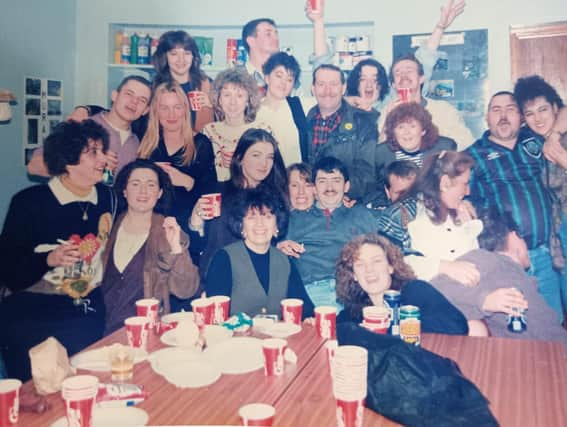

In fact, generations of dedicated staff and volunteers at Dove House has helped enhance and even change the lives of the thousands of people who have passed through its doors down the years.
The founding members were Mary Nelis, Frankie McMenamin, Gerry Toner, Gemma Meenan and Paul Barwise, brother-in-law of Denis Bradley and from its inception, Dove House has been in and of the community.
Advertisement
Hide AdAdvertisement
Hide AdSpeaking to the Journal ahead of the 40th anniversary of its official opening later this year, Frankie McMenamin recalls: "Before we moved in and it became legally ours, Denis Bradley gave us one room in there for adult literacy. Before that we had adult literacy in Bayview Terrace.
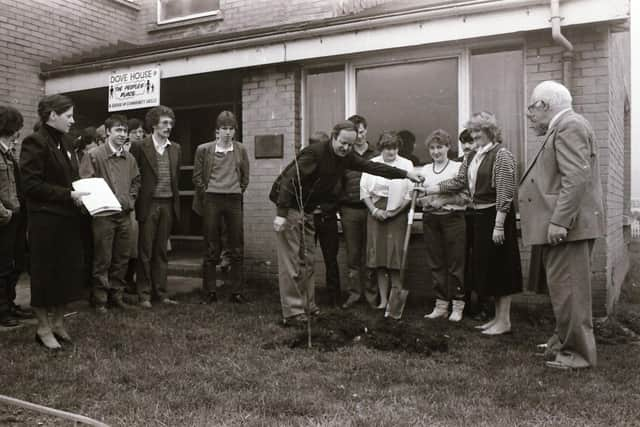

"The Dove House building at that time was connected with the Northlands Centre. We had moved in around February 1984, and around April Denis told us he was moving out, and would have to give the building back to the Housing Executive. But we decided we were staying put and we ended up becoming squatters and then we won the right to stay there. We had a few meetings with the Housing Executive and then they gave it to us for the rent of 5 pence a week.
"It was set up for reading, writing, maths, educating people in our community and our official opening was in November 1984. Like myself, a lot of young people left school with very little formal education. Mary Nelis picked the classes and people came in and were asked what they wanted to do, reading, writing or maths. Tutors were brought in to do the classes. I remember one tutor was Carmel Enwright, who had previously helped to set up the reading and writing classes away before that."
Much has changed since those early days in Derry and the Bogside, but Dove House remains every bit as vital to the community today as it did back then. "At the time we never thought it would reach 40 years,” Mr McMenamin says. “When we opened it was exciting because I lived in the building at the start and there were some good parties but Mary wasn't long putting a stop to that! I was only 19 or 20. Without Mary, Dove House wouldn't have become what it became."
Advertisement
Hide AdAdvertisement
Hide AdWithin a few years Dove House quickly evolved to become much, much more than a community service offering adult education classes, vital though that founding vision still was in terms of creating opportunities for local people all too used to being denied them.
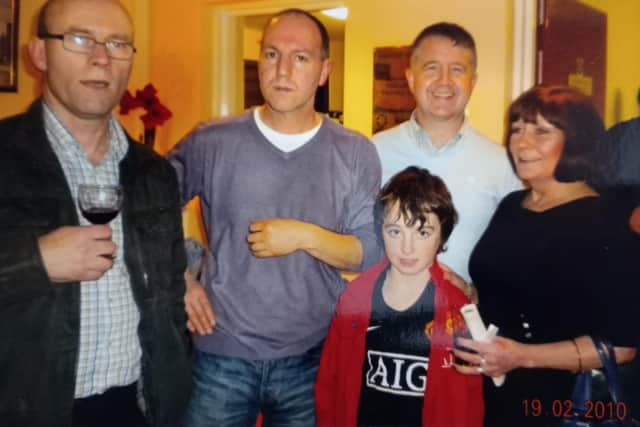

"We ended up turning it into a community resource where we had things like welfare advice services, filling forms in for people, and we had a creche and all that in there too. We never thought it would take off the way it did.
"Around about the end of 1984 I suggested to Mary Nelis we should apply for jobs through the ACE scheme. They came back and said we can get Paddy 'Bogside' Doherty to supply you with some workers or to employ yous but we said no, that we preferred to be independent from the workshop as we were different organisations. Then they actually surprised us in 1985 and came back and gave us four ACE-funded worker posts. We were allowed a manager, a caretaker and two other posts. We were employed through that then. The manager was Paula Martin, Terry Robson, who was a great inspiration for what Dove House became, was the Development Officer, I was the caretaker and there was a woman from Armagh whose name escapes me.”
Activism and inclusion was another defining characteristic of Dove House from its early days.
Advertisement
Hide AdAdvertisement
Hide Ad"After that we became a place for the community and the doors were opened to everybody, Protestant and Catholic. It was badly needed. It was a very significant building. We also took part in protests in the community and lobby for anyone who needed help redeveloping their area."
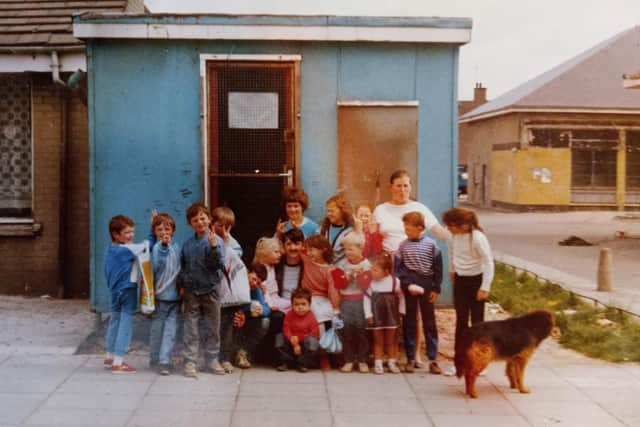

But it was not all plain sailing. Resources were hard won and at one stage the Dove House staff found themselves taking on the might of the British government under then Prime Minister Margaret Thatcher.
"When we secured the four ACE worker posts, the British government decided to step in and withdraw our ACE support through political vetting. Others were affected too. Douglas Hurd and Margaret Thatcher decided to do that and it was read out in the House of Commons that they would withdraw funding from groups like ours because they said that we were furthering the aims of paramilitaries more or less or have links with them, which was far from the truth. We had no links."
It was in January 1986 that the Dove House Management Committee was informed about this. "We had a big massive campaign and eventually we won our funded posts back, but we got no apology. But believe it or not though they actually then gave us up to 20 ACE workers then.
Advertisement
Hide AdAdvertisement
Hide Ad"Dove House was able to employ Eugene Bradley in Welfare Rights. We employed a librarian, a fellow called Patsy, and also an education officer. Around about that time too we got support from the Unemployed Centre to try and help young people with support and to get jobs. Kevin O'Carroll was involved with the Unemployed Centre at the time, and it was through the Unemployed Centre and Dove House that the Gasyard Centre and the Gasyard Féile came about. The Gasyard Féile was first staged in 1993 and I was one of the founding members along with Declan Kearney, who actually suggested it, Jim Collins, Donnacha Niallais, Tony Doherty, Declan McLaughlin and Mary Nelis. That first year The Undertones played but they were under another name at that time.
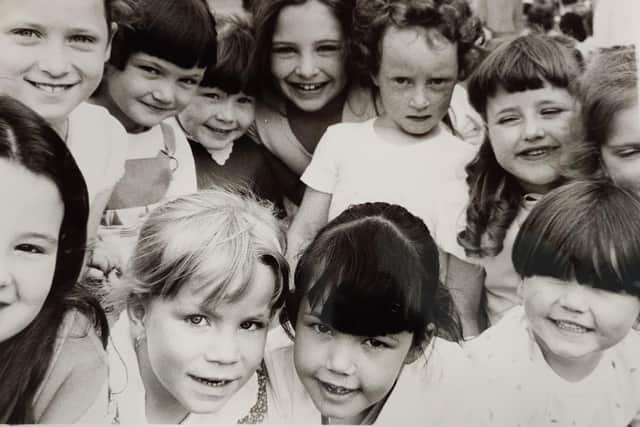

“In between that we had a number of groups who got involved in Dove House. We had what was the ‘Music Collective’ with the two O'Neill brothers from The Undertones and Martin Melarkey, who was a founder of the Nerve Centre, and Declan McLaughlin. They were given an office at Dove House and they were looking for grants and premises to open up a place inside the town, and that was where the Nerve Centre came out of. Before they got any funding around about the late ’80s the punk icon Melvyn Bragg was brought to Dove House by Delcan McLaughlin and their own wee group had a meeting with him and he gave them a lot of support. He was in Derry doing a poster workshop. Dove House was the embryo for the Nerve Centre."
That can be said for many other major organisations in the city too. In fact, many of Derry's most important cultural and social organisations can trace their roots and their inception back to Dove House. These include The Gasyard Centre, The Nerve Centre and the north west's Irish cultural and language hub Cultúrlann Uí Chanáin, which Frankie recalls Gerry O h'Eara always acknowledged that came out of Dove House. “Around about 1985 we gave Gerry O'hEara two rooms in Dove House for Craobh Cholm Cille, a branch of Conradh na Gaeilge. They applied for ACE jobs with us and got a number of workers and some of its first workers were the late 'Bap' Friel, Danny Brown and Donnacha Niallais.”
Dove House within a short period of time became a hive of activity. A new barbers' shop was opened in 1985 by local man Paul Mooney which proved extremely popular, and the in-house team at Dove House also produced their own professional magazines, City Lights and Community View. In the early 1990s a new youth club was opened at the Meenan Square Shops.
Advertisement
Hide AdAdvertisement
Hide AdThen they secured the Gasyard site on the Lecky Road. "Before we opened up the Gasyard Centre we got the go-ahead to own the land and there was a meeting that took place at Pilot's Row 1997 about what people wanted in the area. We done a major survey and asked people what they wanted and they wanted a community centre. The poster for the meeting was designed by my friend Dixie Elliot."
With the opening of the Gasyard Centre, a new chapter in the story of the Bogside was born. But it would probably never have happened without its neighbour Dove House.
Summing up its impact, four decades on, Frankie said: "Dove House has always played a big impact on redeveloping that whole area, all the new buildings and things. It changed a lot of lives. There is up to 40-60 people in Derry now employed in Derry full-time through Dove House in the Gasyard Féile etc.
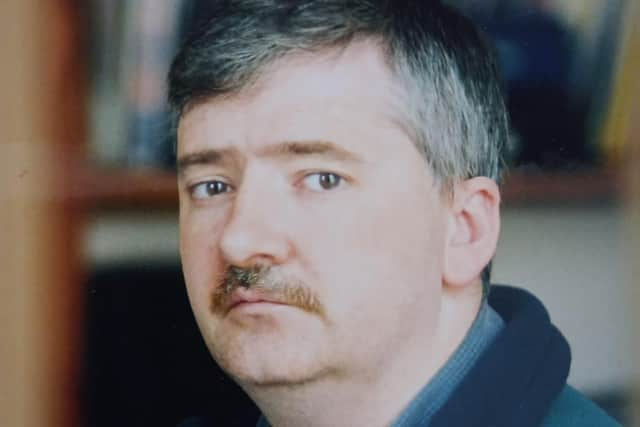

“I would give a lot of credit to Donnacha Niallais, Roisin Barton, Charlie Lamberton, Gerry O'hEara, Karen Mooney, Paula Martin, Marie Boyle and all the people who really worked hard for people in Dove House. I am very proud of being a founder of Dove House along with Mary Nelis, who has made a big impact and is a great inspiration in my life. Mary is still very active in the community.”
Advertisement
Hide AdAdvertisement
Hide AdMr McMenamin and Maurice Mahon would go on to be founding members of the charity Zest, which works with people at risk of self-harming.
Today Dove House is still going strong and Mr McMenamin said he was glad to see that.
"Dove House is growing and it is now on the verge of redevelopment along with the wider area. I want to wish the new manager Jayne Quigg and her team and all at Dove House all the very best for the anniversary and for the future."
Here's to another 40 years at a community hub thriving still in the heart of Derry and in the hearts of many of its people.